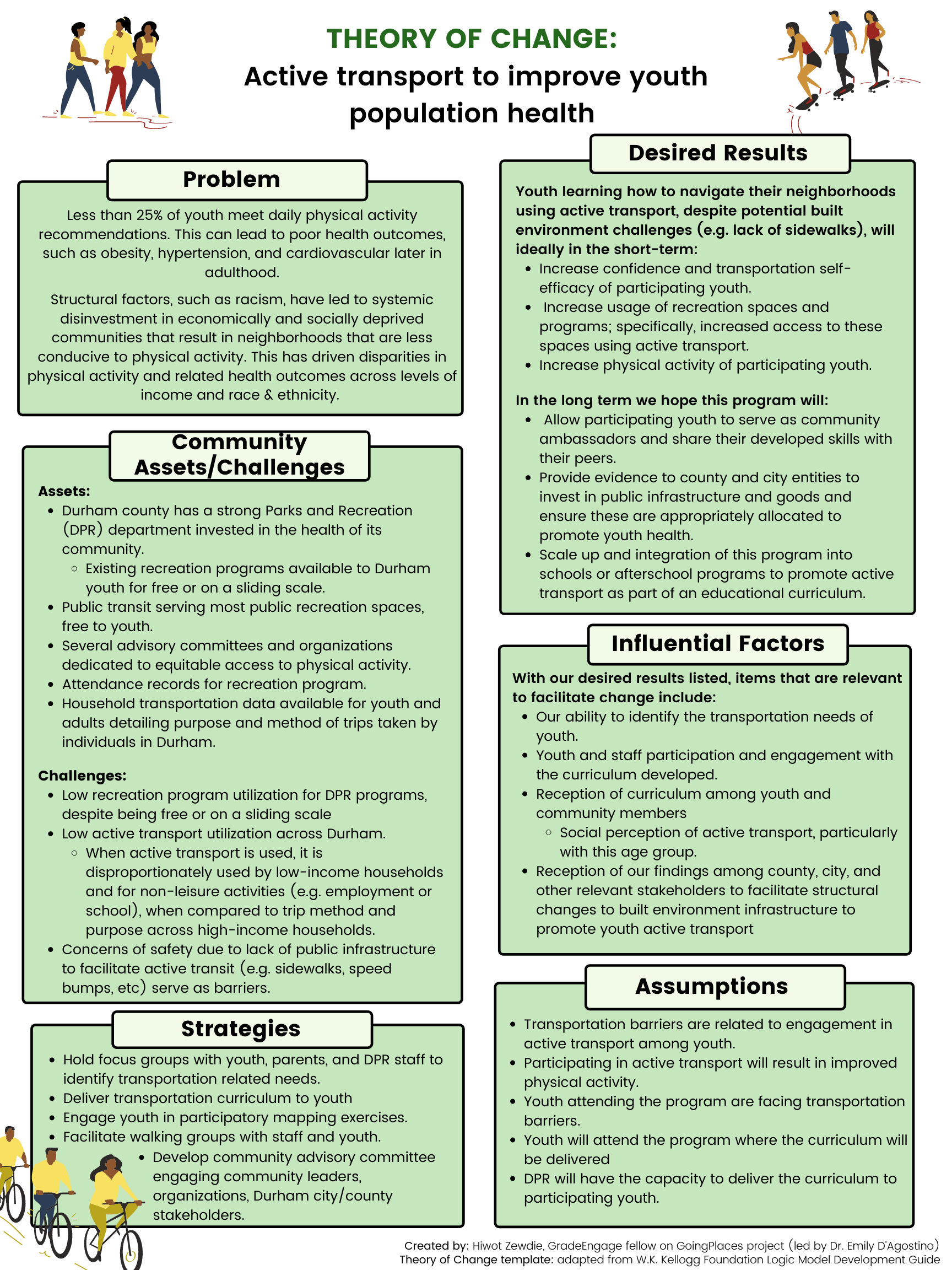Theory-driven models in community-engaged work
Spring cleaning is to thank for today’s post: while cleaning out an old binder, I found notes I took in a research methods course outlining the components of theory of change diagrams. It brought back vague memories of the instructor emphasizing the importance of these types of conceptual frameworks to situate a given intervention in a change-driven system. This led me to think about how aspects of our work with Durham Parks and Recreation (DPR) fit into this framework. Theory of change diagrams consist of six primary components: context of the problem, needs-assessment, processes/strategies to facilitate change, expected outcomes given the previously outlined process, factors that influence this change, and the assumptions that underly the framework. I have considered each of these aspects independently in the context of our work with DPR, but never concurrently in a structured framework.
With that in mind, for today’s post I developed a theory of change diagram situating how I believe the delivery of an active transport curriculum could serve to promote youth health. In brief, I’ve identified the problem of interest (low physical activity) and the relevant background information to contextualize significance (population health outcomes). I continue with a description of community assets and challenges to highlight our “system as it exists”. These are meant to be illustrative not exhaustive, as Durham has several strengths not listed here. Based on the problem identified and our current community strengths and needs, I highlight our strategies to facilitate change (i.e. promote active transport, and consequently, youth health). The expected outcomes are detailed in the desired outcomes section, followed by influential factors that may serve to positively or negatively influence whether our approach is successful in achieving our desired outcomes. I conclude with the assumptions that underlie both this framework and our overall work in this space.

